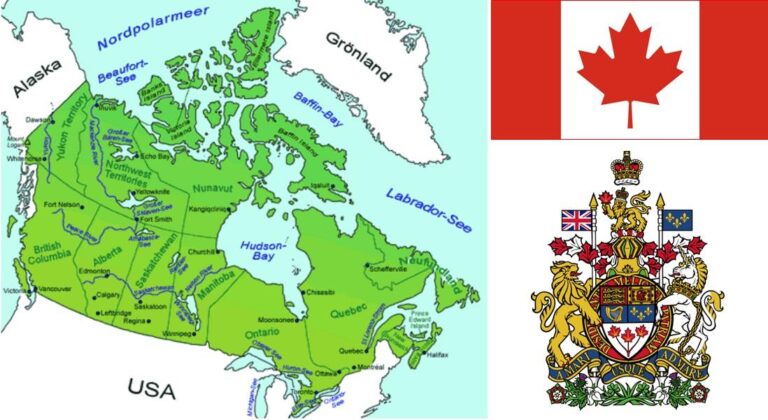Canada marked World Refugee Day with a series of events and initiatives aimed at demonstrating solidarity with refugees around the globe. On June 20, government officials, community leaders, and advocacy groups came together to highlight the challenges faced by displaced individuals and to reaffirm Canada’s commitment to providing protection and support. The day’s activities underscored the importance of international cooperation and the country’s ongoing efforts to foster inclusion and resettlement opportunities for refugees seeking safety and new beginnings.
Canada Reaffirms Commitment to Refugee Support and Integration
Canada continues to demonstrate unwavering support for refugees, reinforcing its role as a global leader in humanitarian aid. On World Refugee Day, government officials outlined new initiatives aimed at enhancing the integration experience for newcomers. These measures include expanded language training programs, increased access to mental health services, and tailored employment support that respects the diverse skills refugees bring to Canadian communities.
Key highlights of the 2024 refugee support plan include:
- 50% increase in funding for settlement agencies
- Dedicated mentorship programs linking refugees with local professionals
- Community-based cultural orientation workshops
- Enhanced collaboration with provincial governments to streamline resettlement processes
| Support Area | 2023 Impact | 2024 Targets |
|---|---|---|
| Language Programs | 12,000 participants | 18,000 participants |
| Mental Health Services | 8,500 cases supported | 15,000 cases supported |
| Employment Assistance | 7,200 jobs facilitated | 10,000 jobs facilitated |
Government Highlights New Initiatives Enhancing Refugee Access to Services
In a significant move to bolster support for refugees across the country, the government has unveiled several new measures aimed at improving access to essential services. These initiatives focus on simplifying pathways to healthcare, education, and employment, ensuring newcomers can integrate more smoothly into Canadian society. Key aspects of the plan include:
- Streamlined healthcare registration processes that reduce administrative barriers.
- Expanded language training programs tailored to refugees’ diverse backgrounds.
- Enhanced employment support services that connect refugees with local job markets.
To provide a clear overview of service accessibility improvements, the government has released the following comparative data:
| Service Area | Access Time (Pre-Initiative) | Access Time (Projected) |
|---|---|---|
| Healthcare Enrollment | 4 weeks | 2 weeks |
| Language Classes Start | 3 weeks | 1 week |
| Employment Matchmaking | 6 weeks | 3 weeks |
The expected improvements in service access times are shown below:
| Service Area | Access Time (Pre-Initiative) | Access Time (Projected) |
|————————|——————————|————————-|
| Healthcare Enrollment | 4 weeks | 2 weeks |
| Language Classes Start | 3 weeks | 1 week |
| Employment Matchmaking | 6 weeks | 3 weeks |
These changes aim to help refugees integrate more smoothly into Canadian society by reducing waiting periods and administrative barriers.
Experts Urge Continued Policy Innovation to Foster Long-Term Inclusion
Leading voices in immigration and social policy stress the necessity of continuous innovation to ensure the full integration of refugees into Canadian society. While current programs have made significant strides, experts emphasize that sustainable inclusion requires adaptive approaches that respond to evolving challenges such as labor market access, language acquisition, and mental health support. They argue that fostering community partnerships and leveraging technology can create more personalized and effective pathways for newcomers to thrive.
Key areas identified for policy advancement include:
- Enhanced skills recognition and credential transfer systems
- Tailored language training programs with cultural orientation
- Expanded access to affordable housing and healthcare
- Strengthening employment mentorship and networking opportunities
| Policy Area | Current Challenge | Recommended Innovation |
|---|---|---|
| Employment | Mismatch of skills and jobs | AI-driven job matching platforms |
| Housing | Insufficient affordable units | Community-shared housing models |
| Language Training | Generic curriculum | Customized learning paths |
| Health Services | Limited culturally sensitive care | Integrated community health hubs |
Wrapping Up
As Canada observes World Refugee Day, the nation reaffirms its commitment to supporting refugees and promoting global solidarity. Through ongoing programs and community initiatives, Canada continues to provide refuge and opportunity to those fleeing conflict and persecution. This day serves as a reminder of the importance of compassion and international cooperation in addressing the challenges faced by displaced populations worldwide.




